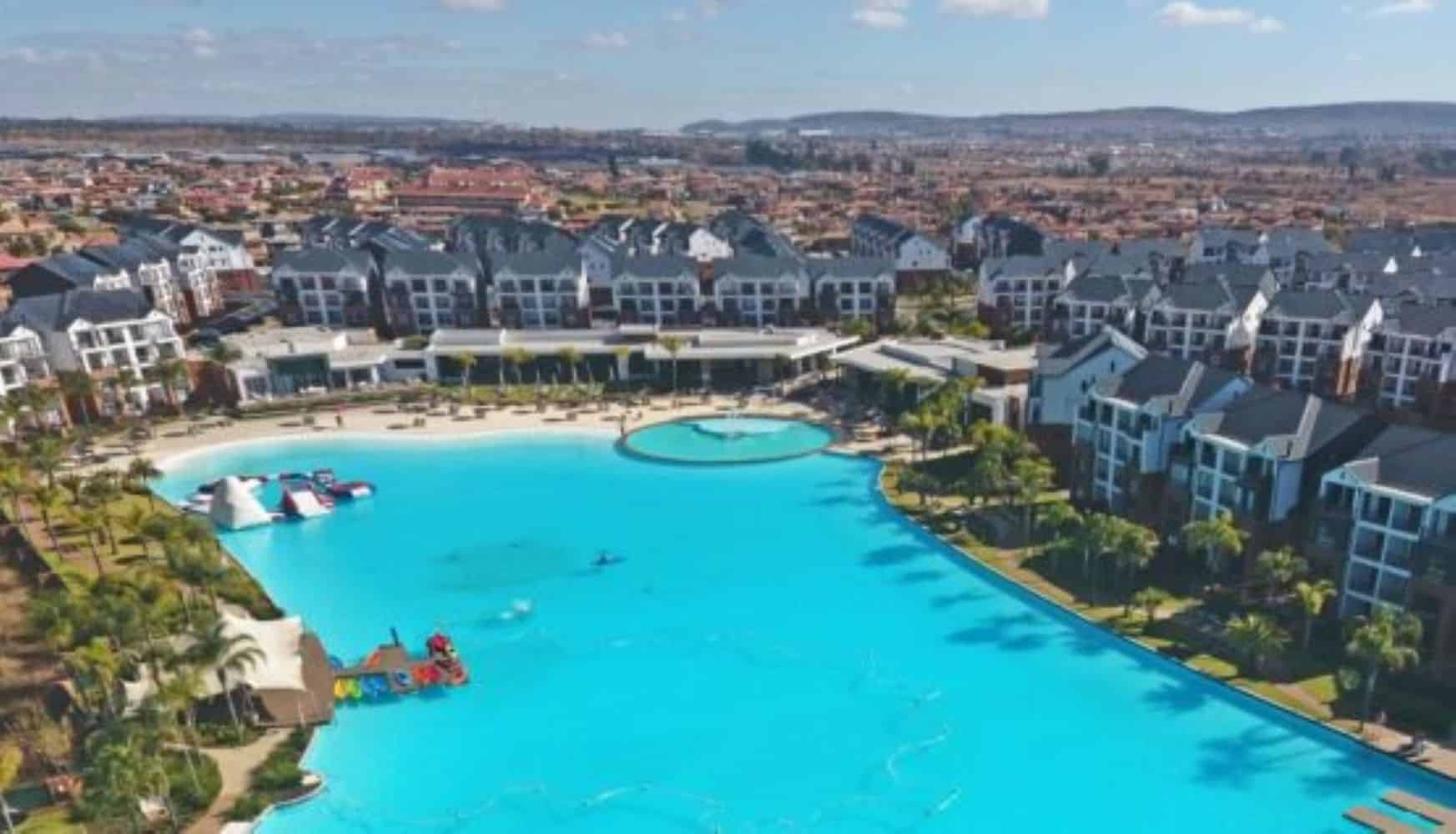Prohibition of this type of letting by homeowner associations, trustees and the developers of some residential estates is proving a thorny issue.

A legal battle is raging over the prohibition of short-term letting (STL) or Airbnb-type rentals in sectional title complexes and residential estates between some owners and homeowner associations, trustees and the developers of these schemes.
The latest dispute involves the validity and regulation of this type of letting at the Blyde Riverwalk Estate, a lifestyle estate in Pretoria being developed by JSE-listed Balwin Properties.
Phases one to 14 of the scheme have been completed, totalling 1 157 units.
It is envisaged that on completion of all 49 phases, there will be 3 281 units in the estate – as well as a crystal-clear lagoon the size of two rugby fields that aims “to bring the beach to Pretoria”.
The first occupation at the estate took place in 2018, and access to the lagoon, which opened in September 2018, is available only to residents.
The roots of the dispute date back to the Covid-19 lockdown in 2020, when the estate was seen as a destination providing Gauteng residents with a “beach holiday”.
Owners using their units for investment and commercial purposes started letting them out only as holiday accommodation.
However, the influx of holidaymakers in July or August 2020 resulted in an increase in complaints from permanent residents and owners about unruly behaviour and poor conduct by these short-term occupants.
The Homeowners Association (HOA) was forced to deploy extra management and security resources over weekends, incurring additional costs in the process.
ALSO READ: Short-term letting in South Africa: Navigating body corporate rules and regulations
New rules passed
The HOA responded by amending the 2018 conduct rules, passing a series of conduct rules to regulate the nature and extent of STL at the estate in 2020.
The new conduct rules prohibited the letting of units in the estate for a period of less than three months without prior consent of the trustees.
They also made it obligatory for owners to notify the trustees of any short-term occupancy for security purposes, and to obtain written consent prior to allowing any STL clients access to the complex.
Any owner who contravened this rule was liable for a penalty equal to 90% of the monthly levy.
ALSO READ: Warning for South Africans buying homes
New rules challenged
The new (2020) conduct rules were approved by the Community Schemes Ombud Service (CSOS) on 15 December 2021.
On 7 September 2021, 81 STL owners launched an application in terms of the CSOS Act, challenging the 2020 conduct rules.
CSOS adjudicator Khosi Mabaso issued an order on 12 January 2022 which:
- Declared the general meeting held on 14 October 2021 was not validly convened;
- Declared the resolution passed at the meeting to amend the conduct rules void;
- Found the governance provision of the conduct rules, having regard to the interests of all owners and occupiers in the scheme, to be unreasonable;
- Ordered the HOA to amend the conduct rules by approving and recording a new clause identical to a clause of the 2018 conduct rules to bring the offending clause in line with the spirit and purport of the Sectional Titles Schemes Management Act (STSMA)and the constitution of the HOA.
The CSOS order was made an order of court on 26 May 2022.
Prior to this, the Blyde Riverwalk Estate, the HOA, and an owner in the estate had, on 11 February 2022, lodged a notice of appeal against the CSOS adjudicator’s order.
They subsequently applied to the High Court in Johannesburg for the operation of the CSOS adjudicator’s order of 11 February 2022 to be stayed pending the appeal against the order. Alternatively, for the operation of a paragraph of the order to be stayed pending their appeal.
ALSO READ: Townhouse or standalone house? Here is what and where 30-year-olds are buying
Judgment
In a judgment handed down last month, Acting Judge M Nair said it is common cause between the parties that Clause 21.4 of both the 2018 and 2020 conduct rules were confirmed and approved by the CSOS.
Nair said CSOS adjudicator Khosi Mabaso, in the adjudication order, did not provide the HOA with an opportunity to deal with the amendment of Clause 21.4 of the 2020 conduct rules in terms of the STSMA by unanimous resolution of the HOA.
Instead, Mabaso elected to substitute the 2021 conduct rules with an order that Clause 21.4 of the 2020 rules be amended by approving and recording a new clause identical to Clause 21.4 of the 2018 rules, to bring the offending clause in line with the spirit and purport of the STSMA and the constitution of the HOA.
“This order, in principle, may have the effect of interfering in the HOA’s power to properly apply … the STSMA and may be an aspect in law which the appeal court may come to a different finding [about].
“Furthermore, for the first respondent [Mabaso] to subsequently regard Clause 21.4 of the 2020 conduct rules as unreasonable is contrary to the earlier CSOS approval of the said conduct rule.
“Having regard to this, there may be some prospect of success of the applicants’ on appeal on this point.”
Acting Judge Nair said Mabaso has applied that the stay application be dismissed, but said, “I cannot find that exceptional circumstances exist not to stay the … adjudication order”.
“I am mindful of the prejudice that a stay of the first respondent’s [Mabaso’s] adjudication order may have on the STL owners and their ability to earn an income from STL if Clause 21.4 of the [2020 rules] were to be applicable pending the finalisation of the appeal proceedings.
“I have also taken into account that at the time of hearing of the matter, there was still STL letting allowed by the first and second applicants subject to the STL owner’s entering into STL agreements with the HOA.
ALSO READ: Insuring your sectional title property – what you need to know
Nair said a fair and reasonable order to all parties in this case “would be in line with the alternative relief sought by the applicants” – Blyde Riverwalk Estate and the HOA – in their notice of motion that operation of Paragraph 147.4 of the adjudicator’s order granted on 12 January 2022 “is stayed pending the applicant’s appeal” against the order.
“Since the 2020 conduct rules were approved by the CSOS ombud prior to the dispute … these rules should apply to the parties pending the finalisation of the appeal.
“Having regard to the rights of the STL owners as property owners, and the financial impact that a total prohibition may have on STL owners pending the finalisation of the appeal, I am of the view that the applicants have proved to this court on a balance of probabilities, that the applicants are entitled to the alternative relief sought in the notice of motion.
“The main relief is thus refused, and the alternative relief of the applicants as sought is granted.”
The 81 STL owners were ordered to pay the costs of the application.
This article was republished from Moneyweb. Read the original here.






